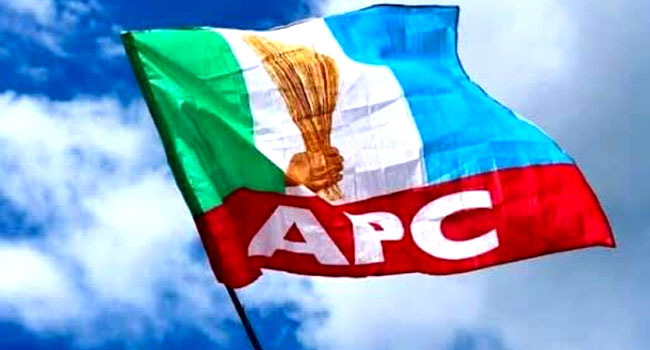The national leadership of the All Progressives Congress (APC) has lodged an appeal against a court order preventing the party from conducting congresses in Rivers State.
This legal development follows a recent judgment that dissolved the seven-man caretaker committee led by Tony Okocha and reinstated Emeka Beke and his duly elected executives.
The ruling was delivered by Justice Godwin O. Ollor in response to a suit filed by Peter Ohochukwu and Hajja Ndidi-Chukwuma on behalf of themselves and all elected executive members of the APC in Rivers State.

The court granted an ex parte order restraining the APC’s national leadership, headed by Chairman Abdullahi Umar-Ganduje, from proceeding with the planned ward, local government, and state congresses originally scheduled for 11th, 16th, and 26th October 2024.
The court’s order effectively halts any immediate attempts by the APC national body to restructure the party’s leadership in Rivers State, pending further legal review.
The legal dispute centres around the legitimacy of the leadership of the APC in Rivers State.
Tony Okocha’s caretaker committee was appointed amid internal conflicts within the party, but the decision was contested by other factions who supported Emeka Beke, arguing that the elected executives were being unfairly sidelined.
The court’s decision to reinstate Beke’s leadership was seen as a victory for the faction advocating for adherence to the party’s established electoral outcomes rather than caretaker appointments.
In his ruling, Justice Ollor further restrained the APC National Chairman, Secretary, and the entire party from interfering with the activities of the reinstated state executives led by Beke until the motion for an interlocutory injunction could be fully heard and determined.
This order is intended to preserve the status quo and prevent any actions that could undermine the authority of the reinstated state leadership.
During the hearing for the interlocutory injunction on Monday, counsel for the APC National Leadership, Chairman, and Secretary, Joshua Musa, a Senior Advocate of Nigeria (SAN), informed the court that his clients had filed an appeal against the order.
Musa argued that the decision to halt the congresses was premature and that the national leadership had the right to manage the party’s affairs, including the scheduling of congresses, as deemed necessary for party cohesion and administration.
On the other hand, Collins Dike, representing the claimants—Ohochukwu and Ndidi-Chukwuma—highlighted that a process had been served on him, for which he required additional time to prepare a response.
Dike emphasised that the court’s original ruling was crucial for protecting the elected executives from what he described as unwarranted interference by the national leadership.
The appeal by the APC national leadership underscores the ongoing internal power struggle within the party, not just in Rivers State but also at the national level, where issues of governance, leadership legitimacy, and internal democracy continue to pose significant challenges.
The national leadership’s attempt to conduct congresses in Rivers State was seen as a move to assert control and potentially reshape the local party structure in a way that might favour certain factions over others.
However, the court’s decision to reinstate Beke and halt the congresses suggests that the judiciary is willing to intervene to ensure that due process is followed within political parties.
Justice Ollor, after hearing arguments from both sides, adjourned the case to 26th September 2024 for a possible hearing.
This adjournment provides a brief window for both parties to prepare their arguments and for the appeal process to proceed.
The outcome of the upcoming hearings will be pivotal in determining the immediate future of the APC’s leadership dynamics in Rivers State.
The broader implications of this legal battle could have a significant impact on the APC’s cohesion as it prepares for upcoming electoral challenges.
Internal disputes and the management of party affairs at the state level are critical issues that, if left unresolved, could weaken the party’s overall electoral strategy and performance.
For now, the focus remains on the court’s next steps and whether the APC’s appeal will succeed in lifting the restraining order, allowing the national leadership to proceed with its planned congresses.
As the APC navigates these turbulent waters, the importance of maintaining unity and respecting the party’s internal democratic processes cannot be overstated.
The ongoing legal proceedings in Rivers State are a stark reminder of the complexities of party politics in Nigeria and the need for clear, transparent, and lawful management of party affairs at all levels.
The coming weeks will be crucial in setting the tone for how the APC addresses internal disputes and moves forward in its quest to maintain political dominance both in Rivers State and nationally.
Support InfoStride News' Credible Journalism: Only credible journalism can guarantee a fair, accountable and transparent society, including democracy and government. It involves a lot of efforts and money. We need your support. Click here to Donate
